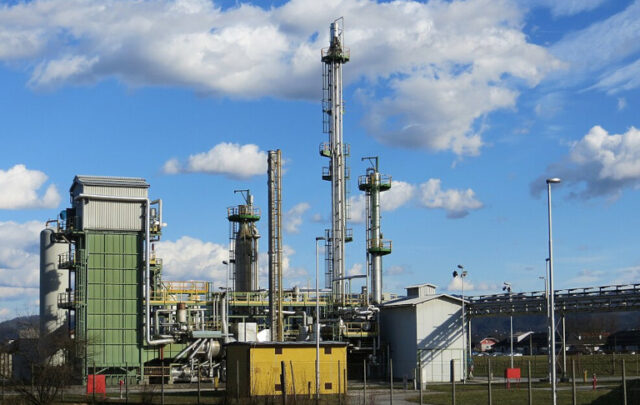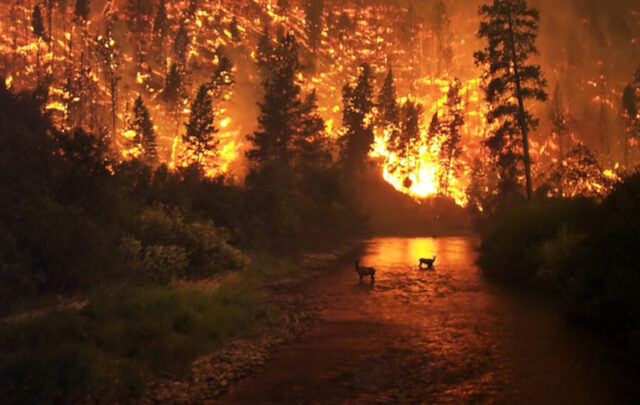Click on the headline (link) for the full text.
Many more articles are available through the Energy Bulletin homepage
EU aims for moral high ground with swingeing climate change package
Ian Traynor and David Gow, Guardian
A blueprint for tackling global warming was put on the table yesterday by the EU, which challenged the US and other big polluters worldwide to join the battle against climate change. Setting out plans for the world’s first significant low-carbon economy, the EU ordered swingeing cuts in greenhouse gas emissions which included challenging targets for Britain.
Under draft legislation unveiled by the European commission, 20% of Europe’s energy mix is to come from renewable sources by 2020, while Europe’s biggest polluting industries must slash their emissions by 21% against 2005 levels by the same deadline.
The climate change package, senior officials in Brussels said, would give the EU the moral high ground, letting it lead the drive for a new, post-Kyoto international bargain on global warming with the US, China and India.
(24 January 2008)
Related:
Europe goes light green (Guardian leader)
Europe gets serious on climate (Christian Science Monitor): “Its plan may be flawed, but at least Europe is taking action. What is the US willing to do?”
Driven by mischief
Leo Hickman, The Guardian
Judging by their ads, some companies now revel in taunting environmentalists. Leo Hickman reports
—
…beyond the mundane adverts for cheap flights, plasma TVs and patio heaters, there is a new generation of advert that almost appears to be goading society’s newfound environmental sensibilities. The website ClimateDenial.org, which “explores the psychology of climate change denial with observations and anecdotes about our weird and disturbed response to the problem”, has been inviting visitors to send in their best examples from around the world and, surprise, surprise, the motoring industry has been generous enough to dream up the majority of candidates for “Best in Show”.
First to India, where an advert for the Ford Endeavour finds this 4×4 behemoth leaving slushy tracks on a melting polar landscape. Behind the two-tonne, seven-seater vehicle, which does just 7.5 km per litre in city driving conditions (compared to 22kmpl for India’s new “People’s Car”, the Tata Nano), stand two rather forlorn-looking polar bears, an animal that has become the symbol of climate change. Could Ford India have chosen a more inappropriate setting to sell its wares? A children’s playground, perhaps?
Ford in the UK goes for a much simpler approach with its Fiesta Zetec Climate (why would you ever use the word “climate” to name a car?) ads by accompanying a picture of the car with just a short sentence: “Most people would prefer a hot climate.” It wouldn’t appear as if Ford’s survey of people’s climatic preferences extended to those living in already parched regions of the planet now fearing the kinds of sharp temperature rises predicted by climatologists.
Using a short, punchy sentence is a popular tactic, it seems. Jeep has settled on using “The End of the World is Never Nigh” as an ideal sentiment to attract customers. Buy a Jeep and you will never have to worry about anything that those doom-mongers keep banging on about – instead you will be cruising along well above those lapping waves.
(24 January 2008)
The Guardian has a gallery of Climate change denial adverts.
Sweden, the E.U. and Renewables
Alan AtKisson, WorldChanging
For those of you who are still thinking of Sweden as the country planning to become “Fossil Fuel Free” by 2020, today’s announcements from Brussels — where the European Commission has just released its proposed new compromise policy for climate change action, to grumbles from both the greens and browns — should puncture any illusions, and remind you that a new government is in charge in this Nordic land.
Sweden had been asked by the EU to increase the share of its electricity produced from renewable energy sources from today’s 40% to 55% by the year 2020. This was to be Sweden’s contribution to the new EU goal of 20% renewable by 2020. But Sweden, formerly always the “good student” when it comes to environment, protested. The center-right coalition made headlines not for its leadership in pushing the EU to more ambitious goals, as it used to do, but for bargaining its way down to 49% – still a substantial improvement, but nothing like the far more ambitious goals (in relative terms) being set by Germany, for example. Currently producing 12% of its electricity from renewable sources, Germany is volunteering to hit 40% by 2020.
And what was the Swedish government’s explanation for negotiating its goal downward? I have just finished watching a live interview on Swedish television with prime minister Fredrik Reinfeldt, and I could not believe my ears. Sweden, he said, had already done much more than any other EU country. And if we took on this more ambitious goal, then other countries would be partly let off the hook. In effect, he said, “Why should we push ourselves to do more? It just encourages others to do less.” That is not a direct quote, but it is a very fair paraphrase.
(23 January 2008)
UN Chief Urges World To Give Looming Water Crisis Priority
Associated Press, Dow Jones
U.N. Secretary-General Ban Ki-moon urged the world on Thursday to put the looming crisis over water shortages at the top of the global agenda this year and take action to prevent conflicts over scarce supplies.
He reminded business and political leaders at the World Economic Forum that the conflict in the Darfur region of Sudan was touched off by drought – and he said shortages of water contribute to poverty and social hardship in Somalia, Chad, Israel, the Palestinian territories, Nigeria, Sri Lanka, Haiti, Colombia and Kazakhstan.
“Too often, where we need water we find guns instead,” Ban said. “Population growth will make the problem worse. So will climate change. As the global economy grows, so will its thirst. Many more conflicts lie just over the horizon.”
He said a recent report identified 46 countries with 2.7 billion people where climate change and water-related crises create “a high risk of violent conflict” and a further 56 countries, with 1.2 billion people “are at high risk of violent conflict.” The report was by International Alert, an independent peacebuilding organization based in London.
(24 January 2008)





